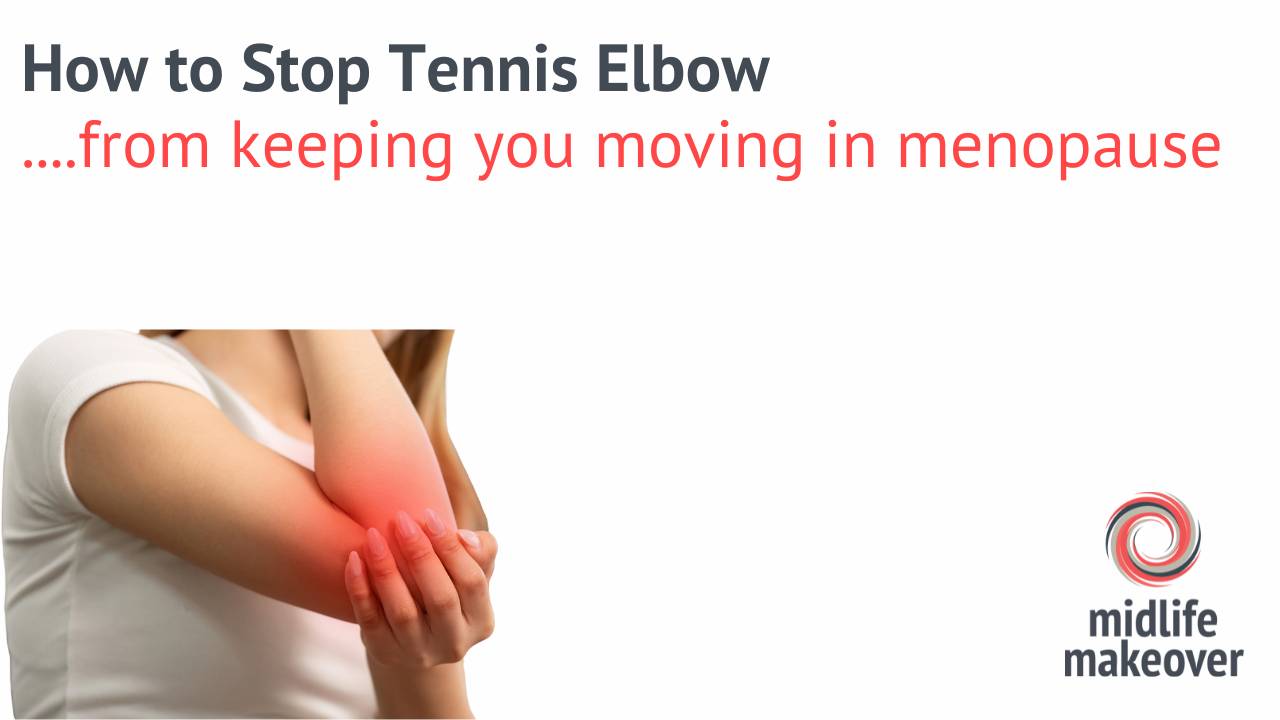Frozen Shoulder and Menopause - What’s the Link?
Aug 26, 2022
Frozen Shoulder and Menopause - What’s the Link?
This is a guest post written by Dr Susan Alexander.
Is there a link between your frozen shoulder and menopause? We have the answers.
Shoulder pain is a common symptom in women who are going through menopause.
There are different potential causes of pain, such as bursitis, rotator cuff tears or acromioclavicular joint problems.
As a shoulder expert, one of the most common problems I see in menopausal women is frozen shoulder.
Frozen shoulder is an excruciating condition in which the shoulder joint capsule becomes inflamed and thickened due to increased fibrous tissue. The result is severe pain, reduced mobility and stiffness.
Many people wonder if there is a connection between their frozen shoulder and menopause.
Is there a link between menopause and your shoulder pain?
As an expert on the shoulder and its associated conditions, we think we can confidently answer the question.
To date, it has not been scientifically proven that menopause directly causes frozen shoulder.
However, several hormonal changes naturally occur during menopause. Hormones are chemicals made in different parts of the body and are transported in the blood, and affect other parts of the body.
For example, oestrogen is mainly synthesised in the female ovaries, found in the pelvis. Still, it has a widespread impact on other parts of the body, including the reproductive tract, heart, breasts and brain. Oestrogen production stimulates secondary sexual characteristics during puberty, including pubic and armpit hair growth.
Most people don’t know that oestrogen has a wide range of effects on musculoskeletal tissues, including increasing muscle mass and increasing tendon and ligament laxity.
Oestrogen levels vary; there are two peaks of oestrogen production in the different phases of the typical 28-day menstrual cycle. Clinical studies have shown that female elite athletes are more at risk of rupturing the anterior cruciate ligament (one of the stabilising ligaments in the knee) during the pre-ovulatory phase of the menstrual cycle when oestrogen levels are high.
During and after menopause, oestrogen levels drop dramatically when a woman stops her periods. Consequently, more than 50% of people who experience menopause also experience joint stiffness as a side effect.
However, the age at which menopause occurs is typically when musculoskeletal problems are likely to begin, making it difficult to attribute these symptoms to menopause definitely. But women generally are more likely to develop frozen shoulders than men, and it usually occurs between 40 and 65. So it is highly likely that this may be hormone-driven.
Outside of menopause, the risk factors for frozen shoulder include diabetes, thyroid disease, injuries, stroke, autoimmune diseases, heart attack, and periods of prolonged immobilisation.
What are the Symptoms of a Frozen Shoulder
Frozen shoulder is one of the most painful conditions that I treat. The range of movement of the shoulder becomes restricted with time. Simple tasks such as reaching forwards to pick something up or holding onto a handrail on a bus or train can be exquisitely painful. Everyday tasks such as doing your bra up from behind or trying to zip up a dress can be agony. Sleep is usually disturbed, and some people wake up several times a night.
Solutions For Frozen Shoulder During Menopause
Fortunately, this is quite a simple condition to treat.
Many patients I see have been to physiotherapy first but have not improved, or the symptoms have worsened as the capsule has become aggravated with exercise. I would recommend seeing a shoulder specialist first to have an MRI scan to exclude any other structural damage to the shoulder. Then an ultrasound-guided injection to the shoulder joint capsule with a local anaesthetic, hydrocortisone and normal saline (salt water) as an outpatient procedure. This injection usually improves the pain within days, but the movement may take a few weeks to recover.
Physical therapy is essential 4-5 days after the injection to stretch out the capsule to regain movement. Many exercises involving the rotator cuff and shoulder area can help decrease the amount of pain and loss of motion.
The joint should be reassessed between 4-6 weeks, and if the pain has not entirely subsided, a second injection may be required.
What About Surgery For Frozen Shoulders?
If the symptoms are still present after the second injection, surgery should be considered, but in my practice, this is the last resort for treatment. This is a straightforward day-case procedure and done using keyhole surgery. The tight capsule is carefully divided to free up the shoulder joint. The improvement in the range of movement is immediate, and patients are encouraged to use their arm as much as possible straight away. Complications are low, and most people are happy with the results.
Final Thoughts
Frozen shoulders can cause intense pain and stiffness. The lack of sleep causes irritability and fatigue that affects the performance of simple daily tasks and relationships, leading to depression. The initial treatment with injection is simple, quick and highly effective. I am often amazed by how long patients are prepared to put up with pain in their shoulder. After their injection, people often say to me, “That was a miracle! I wish I had done it sooner.” treating frozen shoulders.
About the Author
Dr Susan Alexander is a specialist shoulder surgeon with extensive experience in many shoulder-related injuries and chronic pains.
Her work is primarily in minimally invasive shoulder surgery and is supported by 20 years of experience. She would be more than happy to help people suffering from conditions like frozen shoulders if other treatments have been unsuccessful.





